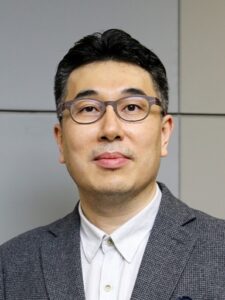Korea University and APRU have launched a new program for the development of sustainable waste management strategies, paving the way for new state-of-the-art treatment technologies and advanced management strategies pertaining to recycling and recovery of organic waste.
Sustainable waste management has become one of the most pressing issues of our time, as the conventional practices are imposing increasingly critical burdens on the environment, such as the degradation of precious land resources and the acceleration of global warming.
In appropriate handling of agricultural waste, such as manure and fertilizer run-off from fields, not only causes environmental issues but also constitutes a loss of valuable nutrients and energy contained in it, while daunting challenges are also posed by the sharply increasing amounts of industrial sewage and sludge.
Among the many promising approaches to address such issues are a turn to the “more from less” paradigm, globally efficient food production (GEFP), and the perfection of Biochar and compost production and application.
The Sustainable Waste Management program is led by Professor Yong Sik Ok, Director of the Korea Biochar Research Center based in the Division of Environmental Science and Ecological Engineering at Korea University and will be supported by two co-chairs, William Mitch, Full Professor at the Department of Civil and Environmental Engineering, Stanford University, and David Wardle, Smithsonian Professor of Forest Ecology at the Asian School of the Environment, Nanyang Technology University in Singapore.
Waste management on land and the seas has become a major regional as well as global challenge. The launch of the APRU Sustainable Waste Management program is thus seen as a platform that will offer future opportunities for collaborative and multidisciplinary working with experts from APRU’s Pacific Ocean and Sustainable Cities and Landscapes Programs.
“Our new program will provide a platform for the sharing of current scientific and technical knowledge, identify limitations and prioritize key challenges, and review existing international policies, agreements, and frameworks” said Prof. Ok,whose academic background covers waste management, bioavailability of emerging contaminants, bioenergy, and value-added products, including Biochar.
“Indeed, it offers a timely opportunity for knowledge exchange among professionals from all over the world and will actively feed into ongoing policy discourse in the region,” he added.
TheSustainable Waste Management program focuses on “recycling” and “recovery” of waste material, while paving the way towards soil remediation, land remediation and ground water remediation with water and waste water treatments.
The program’s structure comes along with seven main pillars, namely food/organic waste recycling and biomass valorization; agricultural waste processing and recycling; Biochar/compost production and application; waterworks/sewage/industrial sludge treatment and recycling; life cycle assessment and cost-benefit analysis on biological waste management; soil and land remediation; and groundwater remediation.
The supporting APRU universities are California Institute of Technology, Chinese University of Hong Kong, Korea University, Nanyang Technological University, National University of Singapore, National Taiwan University, Stanford University, The Hong Kong University of Science and Technology, The University of Auckland, The University of British Columbia, The University of Hong Kong, The University of Sydney, Tsinghua University, University of California, Berkeley, UNSW Sydney, and Yonsei University.
In addition, there will be members from non-APRU universities, industry, and professional organizations.
“TheSustainable Waste Management program will assist the formulation of an efficient management agenda that not only satisfies the environmental compatibility but also financial feasibility and social needs,” said Prof. Ok.

The Sustainable Waste
Management Program Director

